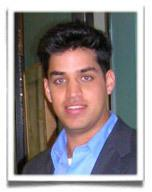A recurring theme emerging from the recent exchange between Senators Clinton and Obama has been the role of race and gender in electoral politics. Just as race and gender issues provoke emotional responses and fierce debate among other minority groups across the United States, the Indian-American community also struggles to address identity politics with regard to coalescing different cultures and social backgrounds of Indian descent within its own community. Specifically, as a minority race in the American community, Indian-Americans are composed of different religions (Hindus, Muslims, Sikhs, Buddhists, Christians), different cultural/regional backgrounds (Gujarati, Bengali, Punjabi, etc) and varying socio-economic careers (small business owners, doctors, taxi cab drivers, engineers, etc). These differences have caused fractures and enduring scars between each group in the past, both in India and in the United States. Yet, in a very peculiar and special way, Indian-Americans have joined together and represent a strong 2.6 million individuals to Congress. Do Indian-Americans, with their vast regional, religious, and socio-economic backgrounds, have the ability to become a legitimate and powerful force on Capitol Hill? Some would argue that the community’s political prowess has already taken shape. For example, the community’s response to and support of the U.S.-India Civilian Nuclear Agreement was well-regarded by members of Congress and White House administration. Moreover, Indian-American candidates are propping up across the United States (seven candidates in the November 2006 ballots), bringing with them a unique ‘Indian-American identity and perspective’. But, the Indian-American community faces several large obstacles in the way of becoming a united and pervasive force in American politics. These obstacles include a lack of clarity of purpose and a true understanding about the Indian-American community’s identity. These obstacles must be surmounted before any further progress can and will be made. One of the reasons USINPAC has been successful is its strategic calculation of uniting the Indian-American community on issues of immigration, small business administration, and foreign policy to bring a potent and united front to Congress. But what Senator Clinton and Obama’s remarks about race should evoke is a discussion within the Indian-American community about race, cultural, and religious reconciliation in order to meet the interests of the community as a whole. What values and interests do we promote as Indian-Americans? What differentiates our community from other minority groups and the broader public? What public policy goals should Indian-Americans be pursuing together? How does the Indian-American community address the needs of its very diverse and pluralistic Indian-American composition? Granted, the discussion of these topics have been relevant for quite a while, yet, there seems to be a greater need to concretize these issues before the community continues to assert itself in the harsh realities of the political landscape. The practical implication of understanding Indian-American identity is self-evident. The next time Congress or White House administration pushes for a deal on immigration, how the Indian-American community responds and advocates depends entirely on how the community views itself. A frank and truthful discussion about the Indian-American community, by Indian-Americans themselves, is required at a time when the public has placed special attention to race relations in America.

Raj Verma, JD/MPA
Blog Contributor
Raj Verma is the President of the Future Leaders Council for USINPAC. He currently resides in Washington DC.










